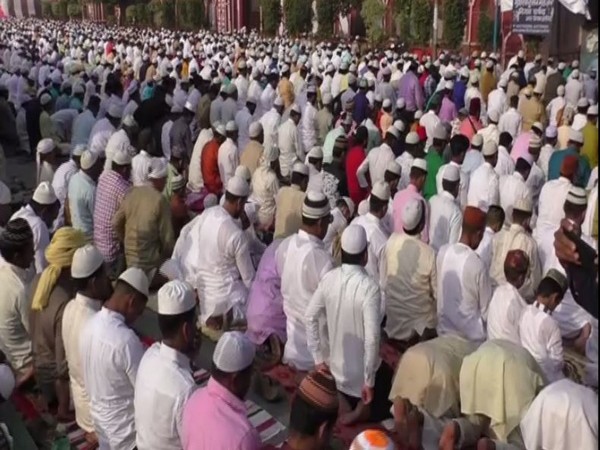Assam devotees offer Bakr Eid namaz at home in COVID-19 time
Following meetings with community leaders, the Assam government allowed the gathering of three to five persons for offering namaz in masjids in different districts on the occasion of the festival. The administration of Kamrup (Metropolitan) district that comprises Guwahati has allowed the gathering of five devotees for offering the Eid namaz.

- Country:
- India
Most of the devotees of Assam offered their Eid al-Adha prayers at home on Saturday following a government order that did not allow large gatherings in mosques in the wake of the surge in COVID-19 cases in the state. The Muslim community refrained from Qurbani (animal sacrifice) this year in view of the pandemic, said officials.
Imams along with the permitted number of worshippers offered namaz in mosques on the occasion of the festival, also known as Bakr Eid. The persons permitted to gather at mosques and idgahs were directed to follow social distancing protocols at the time of prayer and wear facemasks.
"The places of offering namaz must be sanitised before and after the namaz," according to a government order. Following meetings with community leaders, the Assam government allowed the gathering of three to five persons for offering namaz in masjids in different districts on the occasion of the festival.
The administration of Kamrup (Metropolitan) district that comprises Guwahati has allowed the gathering of five devotees for offering the Eid namaz. Authorities of Kamrup, Karbi Anglong and Barpeta permitted the presence of three persons, including imams.
The figure was kept at five, again including the imam, by Karimganj, Hailakandi, Jorhat, Nalbari, Tinsukia districts. Some devotees distributed uncooked rice, dal, oil and vegetables among needy people.
(This story has not been edited by Devdiscourse staff and is auto-generated from a syndicated feed.)
- READ MORE ON:
- Assam
- Kamrup
- Barpeta
- Karbi Anglong
- Hailakandi
- Karimganj
- Nalbari
- Jorhat
- Tinsukia
- Guwahati
ALSO READ
PM Modi to address rally in Nalbari on Wednesday
Modi came with hope in 2014, trust in 2019 and guarantee in 2024: PM in Assam’s Nalbari
Assam's Karimganj ready for Lok Sabha phase 2 polls: SP Partha Protim Das
Three-way fight in Assam's Nagaon and Karimganj seats as BJP, Congress and AIUDF battle it out
Assam: Poll authority begins distribution of election material for Karimganj parliamentary constituency










